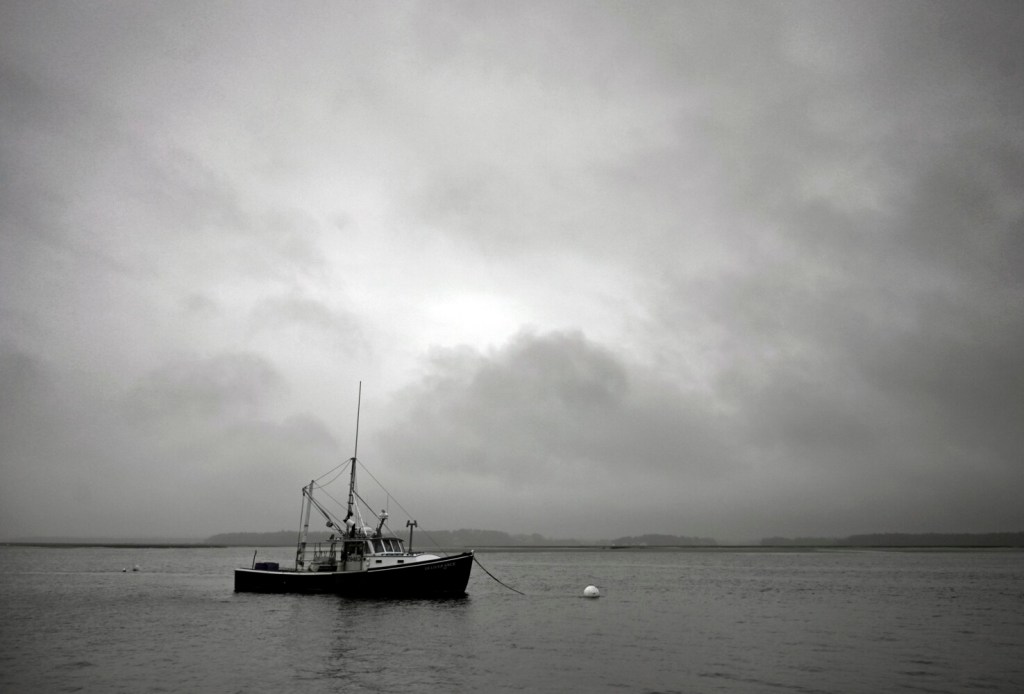A pair of Maine nonprofits is trying to help lobstermen, their families and crew members start other businesses as the storied industry reckons with an uncertain future.
The Island Institute and the Maine Center for Entrepreneurs are accepting applications for a new program this fall to teach them financial literacy skills and how to develop and launch side businesses.
Inflation and rising costs in recent years have made it harder for lobstermen to make a living off fishing alone. Looming federal regulations could require them to make expensive changes. And the impacts of climate change could leave the industry with no lobstering businesses to run.
“We all know that the fishery is changing. The waters are warming, and this is something that all fishing families will have to deal with,” said Jeffrey Frank, senior community development officer at the Island Institute. “We’re trying to offer people options and ways they can explore what it is they want to be able to do.”
WHY DO LOBSTERMEN NEED THIS?
Maine’s lobster industry has been a powerful economic driver for decades, funneling about $1 billion a year into the state economy and drawing tourists from near and far, according to state reports.
Last year, the fishery was valued at $528.4 million, the third highest in its documented history. Lobstermen earned $6.14 per pound, a close second to the record-high dock price in 2021. But when decades of industry data is adjusted for inflation, the seemingly strong dock price in 2024 drops to No. 59 of 75. Many of the fishery’s most lucrative years were before 1970.
Lobstermen have said earnings aren’t compensating for the rising costs of bait, fuel, gear and labor, leading to fewer trips on the water.
As of right now, federal regulators will begin drafting new rules on Jan. 1 2029, to protect the North Atlantic right whale from fishing gear entanglements. In order to reduce those entanglements, regulators and scientists alike have been considering alternative ropeless gear that would rely on technology to bring traps up from the ocean floor. One of the major issues with the potential regulations is the sheer cost of transitioning a whole fleet of gear to meet the requirements.
There are also concerns, on top of an already long list, that decades from now, there might not be any lobster to haul. The temperature of the Gulf of Maine’s waters are rapidly warming — three times faster than the global average. And research shows lobsters may soon move north to chase a cooler climate.
In the face of these challenges, the Island Institute wants participants to dream big while they are in the program.
Do they want to strengthen their lobstering business? Do they want to make a plan for side business, like an oyster aquaculture farm? Do they want to become an inventor and make a prototype for a piece of fishing gear that you then learn how to get off the ground?
Frank said there is an opportunity to do it all.
WHAT CAN LOBSTERMEN LEARN?
The Fishing Plus Accelerator program is geared toward lobstermen, but there’s a wide expanse of people they want to reach.
Any former or current lobstermen can apply. Frank said he wants to see sternmen and crew members who don’t captain a boat or own a business applying for the program. The program is also welcoming members of these generational lobstering families.
“It doesn’t matter if your idea is tied to the water, the waterfront, or entirely onshore — what matters is that you’re ready to get your idea off the ground,” Frank said.
The program will run eight sessions in the fall. And Frank said the Island Institute will accept eight to 10 businesses into the program, each group most likely including two or three people working together.
Each class will focus on a different topic, such as aligning personal and building better business models, drawing in more customers with marketing and social-media strategies, starting new, adjacent businesses and getting the funding to do so. Participants will close out the program with an opportunity to present the pitches they’ve developed to a panel of lenders, investors and community leaders.
The initiative is funded in part by a $1.4 million award from the Small Business Administration to support the economic resilience of Maine’s working waterfronts and the coastal communities dependent on the lobstering industry.
Copy the Story Link
